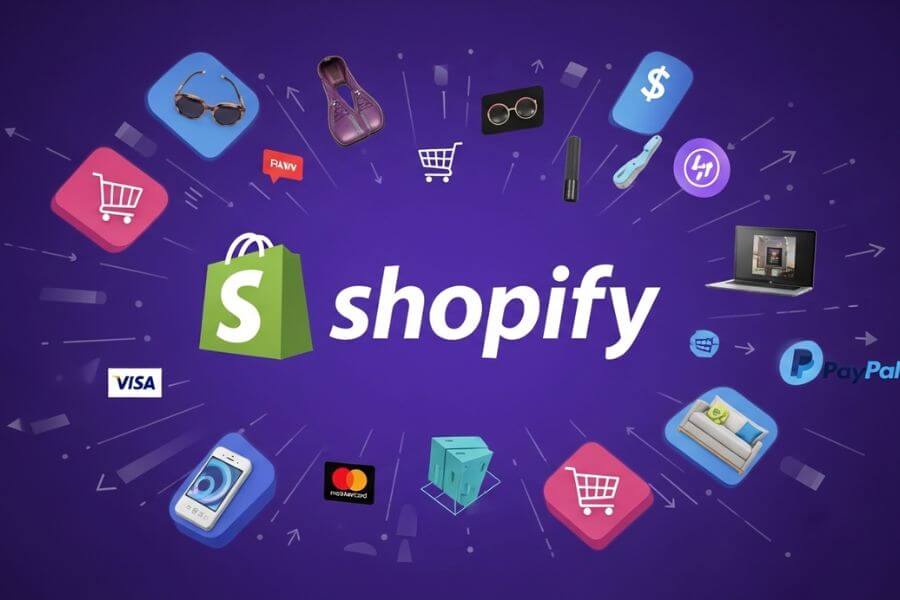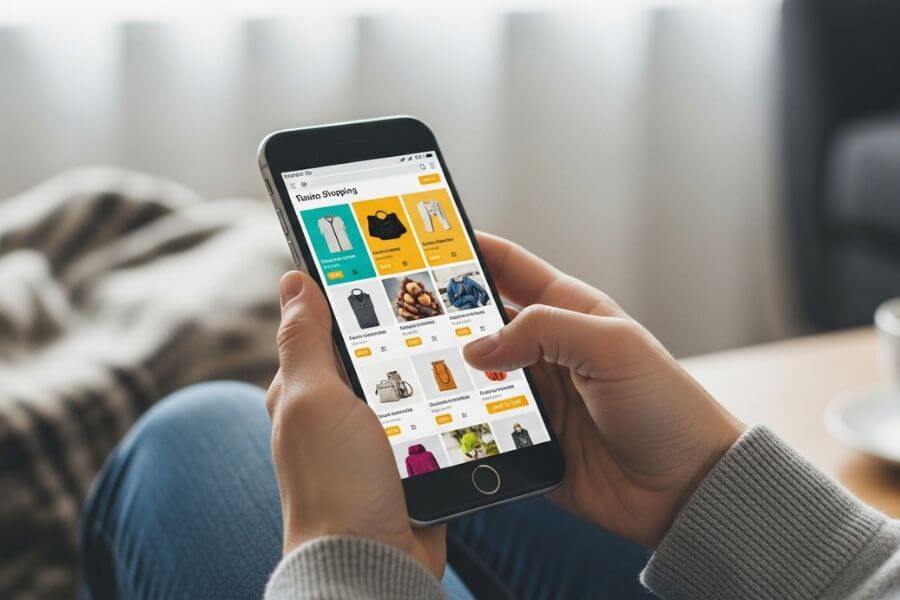Running an online store on Shopify is easier than ever—but the difference between a good store and a great store often comes down to the apps you install. With thousands of available apps in the Shopify App Store, choosing the right ones in 2025 can be a game‑changer: boosting conversions, automating heavy lifting, increasing customer loyalty, improving speed and SEO.
In this post I’ll walk you through 20 excellent Shopify apps that work well in 2025, covering categories like design and layout, marketing & email, reviews & social proof, shipping & fulfilment, SEO & performance, loyalty & subscriptions—and more. You may not need all of them, but you’ll likely find 8‑10 that can transform your store.
1. PageFly
PageFly is a drag‑and‑drop page‑builder app for Shopify that lets you create custom landing pages, product pages, blog sections, FAQ pages without needing/code. It supports 100+ templates, full mobile‑responsive editing, and integrates with many Shopify themes. If you feel limited by your theme or want high‑quality landing pages for campaigns (e.g., BFCM, new product launches) this app gives you the design freedom and conversion‑focused tools to build quickly.
2. Klaviyo
Klaviyo is a top-tier email & SMS marketing app built for eCommerce. It pulls in your Shopify data (purchase history, browsing behaviour), lets you segment deeply, trigger flows (welcome series, abandoned carts, win-back), and personalise at scale. If you’re serious about building customer relationships, retaining buyers and scaling your store, Klaviyo is a strong choice—just be aware the cost can rise as your contact list grows.
3. Omnisend
Omnisend gives you a slightly lighter weight (and sometimes more budget-friendly) email + SMS + push notification platform that integrates with Shopify. It offers strong email/SMS workflows, A/B testing, templates, pop-ups and list-building. For smaller or growing stores that don’t yet need the full complexity of Klaviyo, Omnisend is a solid pick.
4. TinyIMG
TinyIMG is designed to improve page load speed, optimise images (compressing automatically, lazy loading), and help with metadata and SEO tweaks. Since site speed and image load times increasingly affect conversion and SEO in 2025, this kind of optimisation app plays a key role in maintaining performance and search-engine friendliness.
5. Loox
Loox stands out as a product reviews app that emphasises photo- and video-reviews, visual social proof, referral incentives and smooth display widgets. For lifestyle, fashion, or beauty stores where visual credibility matters, Loox helps leverage user-generated content (UGC) to boost trust and conversion.
6. Judge.me
Judge.me offers a very strong review app for Shopify with affordability and features. If your store wants to gather reviews, show ratings, embed review widgets and increase social proof without breaking the budget, Judge.me is a dependable choice.
7. AfterShip
AfterShip is a fulfilment-support app for order tracking, shipment notifications, and return management across many carriers. For eCommerce stores operating globally or with multiple shipping carriers, giving your customers clear tracking and return experiences helps build trust and reduce support overhead.
8. Printful
Printful integrates seamlessly with Shopify for print-on-demand apparel and accessories, automating fulfilment so you don’t need inventory. If you’re running a print-on-demand business model, or wanting to test niche products without inventory risk, Printful remains one of the go-to apps in 2025.
9. Booster: Page Speed Optimizer
Booster: Page Speed Optimizer is a performance-boosting app focused on reducing loading times, optimising scripts, and improving overall storefront speed. Especially for stores with heavy assets (images, video, third-party scripts), this helps ensure you’re not losing visitors due to slow load times.
10. GemPages
GemPages offers an alternative drag-and-drop builder for Shopify, similar to PageFly, giving you additional flexibility for page creation and custom layouts. If PageFly doesn’t fit your workflow or budget, GemPages is a strong backup option.
11. Rebuy
Rebuy focuses on personalised product recommendations, bundling, and upsell flows tailored to the individual customer’s behaviour and history. If you want to increase average order value (AOV) and personalise the shopping experience, Rebuy is worth exploring.
12. Gorgias
Gorgias is a helpdesk, live chat, and customer support tool built for Shopify merchants. It consolidates support messages from email, chat, and social platforms and gives full customer history. As your store grows, fast and efficient customer support becomes critical; Gorgias helps make that scalable.
13. Returner
Returner is built to help merchants automate product returns and exchanges, a rising pain-point as online shopping volumes continue to rise. If your return rate is non-trivial (e.g., apparel, electronics), managing the process elegantly and automatically improves customer experience and lowers operational burden.
14. LoyaltyLion
LoyaltyLion provides loyalty programmes, reward points, and referral mechanics so you retain existing customers and encourage repeat buys. In 2025, with acquisition costs high, investing in retention via loyalty is smart. LoyaltyLion gives you that infrastructure in Shopify.
15. Sufio
Sufio handles automated professional invoices, tax compliance, multi-currency support, and document generation for international sellers. If you’re selling globally or B2B, ensuring invoices and tax documents are clean and correct is key—and Sufio automates that for Shopify.
16. OrderEdit
OrderEdit allows you to edit orders (prices, products, shipping) after checkout, which Shopify’s core doesn’t always allow easily. For stores with custom orders, B2B adjustments, or frequent change requests, OrderEdit can save you customer-service headaches.
17. Checkout Blocks
Checkout Blocks gives Shopify merchants more flexibility in customizing the checkout flow—adding sections, upsells, and custom messaging. Checkout is one of the highest-leverage areas for conversion; if you can refine it, you win.
18. SKIO / Recharge / Firmhouse
SKIO, Recharge, and Firmhouse enable subscription business models on Shopify (re-orders, membership products, recurring revenue). As eCommerce moves into lifetime-value strategies, subscriptions are more than “nice-to-have”—they’re strategic.
19. ImageFlow
ImageFlow specializes in automating product image uploads, compression, alt-text generation, bulk image management, and SEO for images. For stores with large catalogs (hundreds or thousands of SKUs), this kind of automation saves hours and improves site performance and SEO.
20. Trustoo.io
Trustoo.io specializes in collecting reviews, automatically translating them into multiple languages, and is especially helpful if you serve international markets. If your store sells globally or across language regions, a review app that handles translation and localisation is a competitive advantage.
Conclusion
Choosing the right Shopify apps depends on your store’s stage and goals—new stores may start with a few essential tools for design, marketing, and reviews, while growing stores can add upsells, loyalty programs, and subscriptions. Keep performance in mind, ensure smooth data integration, and monitor ROI for every app. Test and adjust features like flows, reviews, and landing pages to see what works best. Prioritize apps that improve speed, mobile experience, and international reach, and your Shopify store can go from simply online to fully optimized and high-performing.





